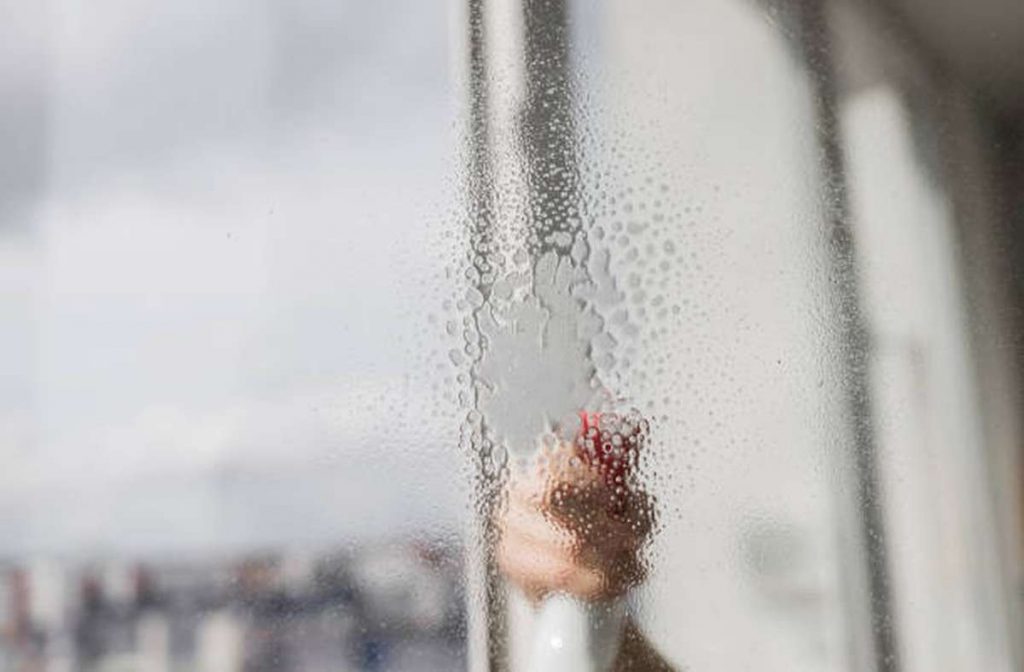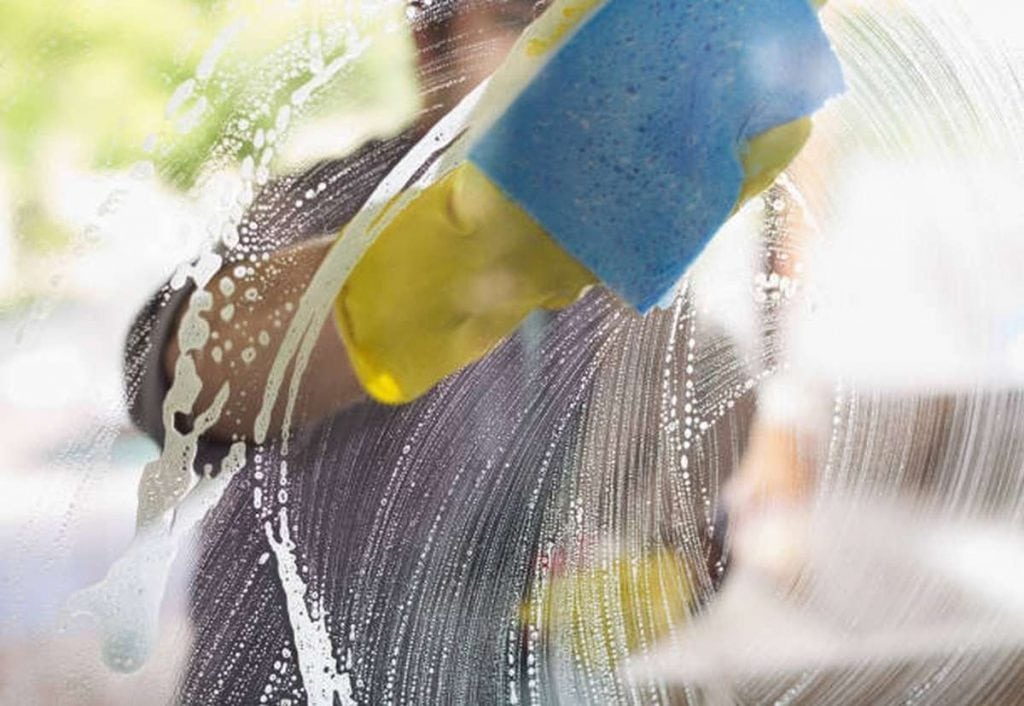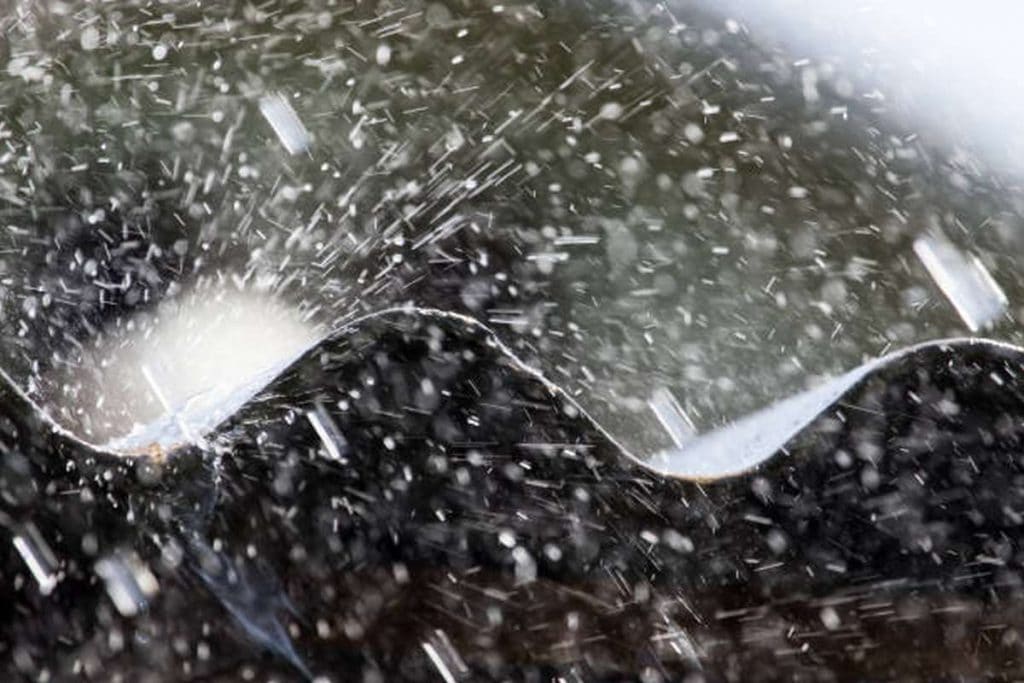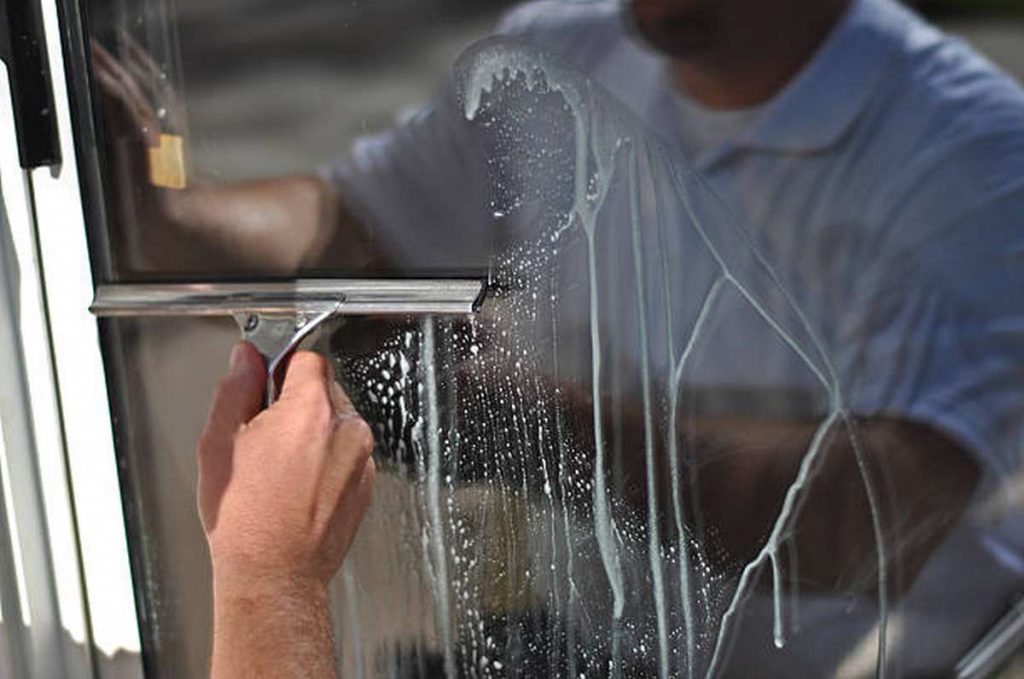Are you one of the many people today who are struggling to keep their windows clean? You’ve tried everything from using your own homemade cleaning solution to hiring professional window cleaners, but nothing seems to work. Don't worry - there is hope! Today we want to focus on what common mistakes people make when it comes to cleaning their windows and how you can avoid them. Whether you're looking for an easier way or just need advice on what not to do, this article will help clear up any confusion about correctly caring for your windows. So read on and get ready for clearer views with every cloth wipe!
Failing To Perform Pre-Dust
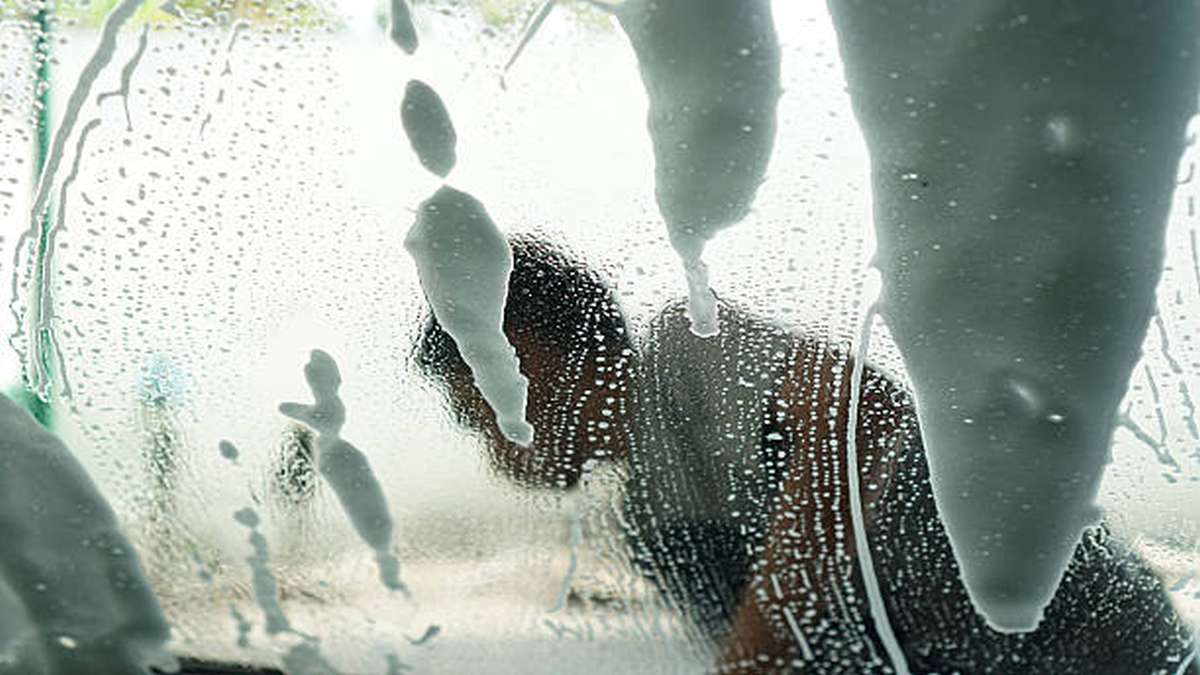
To have a clean window, dusting the window is a good initial step. Cleaning the windows in your home can help to ensure the safety of everyone living there.
Frequent dusting is the best defence against windows getting dirty. This will let you inspect the windows for filth and debris before you clean them. In addition, this will aid in avoiding streaking.
If you have a hectic schedule, it may be worth it to pay someone to help you out regularly with these activities.
Using Unsanitary Or Inexpensive Cleansing Supplies
Using high-quality equipment and supplies is essential to achieving success in any endeavour. However, you can't use paper towels in place of a squeegee or cleaning solution, and you can't expect the cleaning solution to replace paper towels.
Investing in microfiber cloths for routine window cleaning is a no-brainer because of the time and energy they'll save you over traditional dusting methods. However, these typically become soiled rapidly. As a result of their frequent use as a stopgap measure, most individuals also fail to remember to wash them.
Using the incorrect cleaning supplies might cause streaking on windows. It could also fog up a bit. However, the fact that a low-quality spray can leave behind a film demonstrates that you truly do receive what you pay for in the cleaning supplies department.
Careless Use Of The Wrong Cleaning Product
No streaks or bubbles should be left behind after using window cleaner; rather, the filth and grime should be gone. However, employing a cleaner that is too strong will leave streaks and other visual defects on your windows.
The kitchen and bathroom of most homes are stocked with numerous cleaning materials. But not all of them are compatible with Windows. If you want crystal-clear, streak-free glass, a glass cleaner will come in handy.
If you let dirt and dust settle on your windows, they may streak or develop a haze on the inside that ruins their aesthetic value. If you dust your windows regularly, you won't just save time by not having to clean them over and again because of streaks.
Attempting To Take In Too Much Information At Once
Over-concentrating is a common mistake that people make when cleaning windows. Instead, you should clean one little area at a time to observe its progress and adjust your strategy as necessary.
That's due to a number of factors. One is that cleaning a window involves many steps, and it's simple to forget what you've already done if you're interrupted by something more pressing.
Drying out is another factor. Spraying a broad area with water can be ineffective if it dries before you've had a chance to scrub it, especially in milder regions. When it comes to cleaning supplies, less is more.
The Method Of Drying Is Incorrect
It is essential to dry windows properly after washing them. To prevent fogging, streaking, and dust accumulation, a squeegee should be used instead of a rag.
Regarding windows, microfiber cloths are best used for dusting, not cleaning. Because of its built-in static electricity generator, dust is more easily collected. You can also avoid streaking by using a sweeper rather than a microfiber cloth.
Oversaturation With The Spray
You can easily use too much window cleaning spray while cleaning with a spray. Streaks may appear on your windows because of the dry air.
Because of this, you will have a more difficult time seeing your surroundings. Overspraying, which leaves streaks on windows, can be avoided by using the correct amount of product.
Clean your windows thoroughly so that they won't obscure your view. However, if you try to force things too far, you'll end up with a less-than-stellar cleaning. The windows end up looking dirtier than before you tried to clean them.
It's best to use a product such as Windex or even a squeegee after you've washed the windows to ensure that all traces of dirt and debris have been removed. This will aid in removing any fine dirt particles from places where they can become stuck by your cleaning solution, and will let you reach those areas more easily.
Incorrectly Assuming All Windows Are Made Of Glass.
Inexperienced window cleaners often make the mistake of focusing on the glass alone, rather than the frames. You are then confronted with a dazzling window and fingerprint-covered, dirty frames.
It's important to keep in mind that you need to clean the glass, the frames, and the handles. After that, if necessary, open a window and wipe off the spaces between the panes and the frame. No, you shouldn't attempt this if it's going to start pouring soon.
Clearing The Glass On A Warm Afternoon
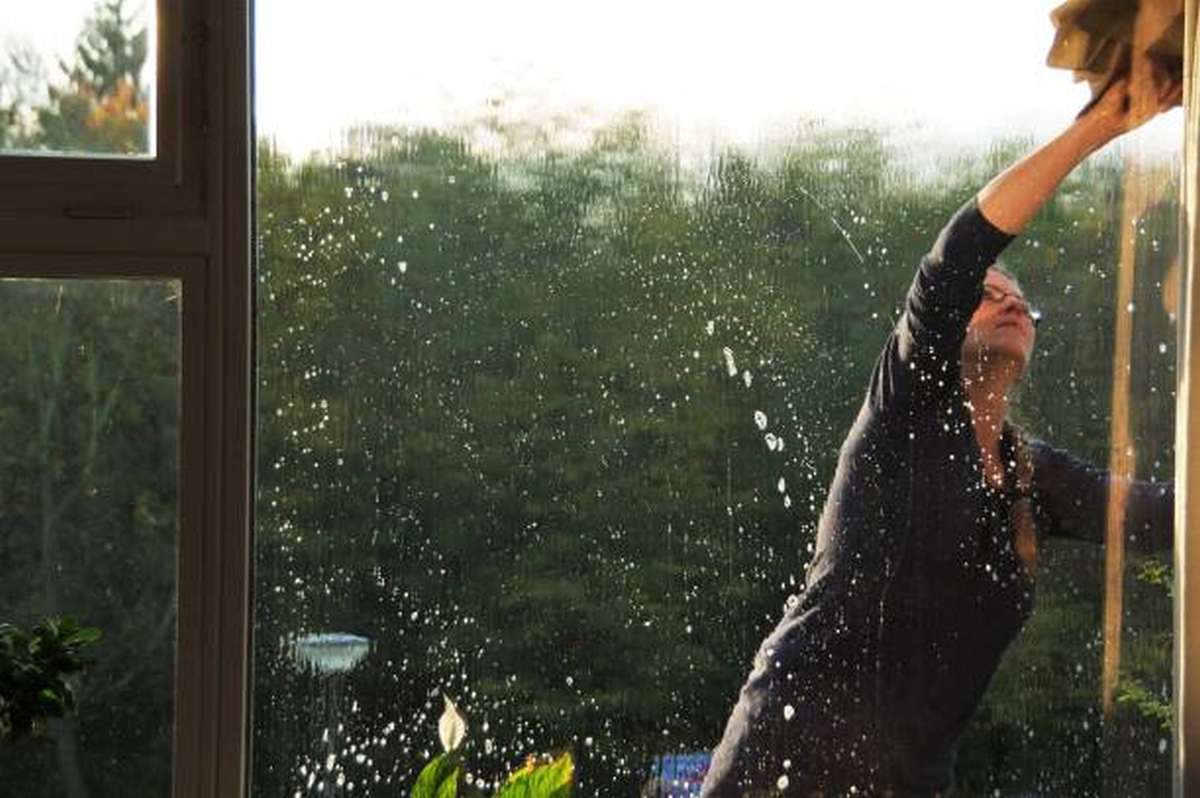
Do you despise it when freshly cleaned windows quickly become foggy and obscure your view? The sun is often unfairly blamed for this occurrence. Actually, once chemicals are applied to glass, they dry very fast in the sun, leading to streaking or hazy accumulation.
Ignoring The Outside Glass
The sight and sound of water droplets on a clean window is one of the most satisfying aspects of washing glass. However, if the exterior isn't kept clean, the wind might blow through and cause the glasses to fog.
Doing so leaves streaks on the window and impairs your vision. You may easily avoid this by wiping the rain off the window before you clean it with a cleaning cloth or squeegee.
Cleaning Glass With Abrasive Water
Keep in mind that not all water is suitable for cleaning glass surfaces. Hard water may seem like it would be ideal for the task at hand, but it actually leaves behind mineral buildup and ugly blemishes on glass windows. It's recommended to use distilled water or soft water, as these types of water are better at removing scale from surfaces before they come into contact with them.
Choosing Not To Use A Specialised Service.
If you desire your windows to look their best, it's better to hire an experienced window cleaning service. These companies have the equipment and expertise to make your windows look brand new. Common blunders, such as employing too much cleaning or not drying the window well, are also easy to avoid with their guidance.
Conclusion
This article will help clear up any misconceptions about properly caring for your windows, whether you're looking for a simpler solution or just need advice on what not to do. For this article's purposes, we'll be focusing on the most frequent errors individuals make when washing their windows, as well as providing advice on how to correct them. The aesthetic value of windows is diminished if dirt and dust are allowed to accumulate on them and cause them to streak or become hazy. A squeegee, rather than a rag, is recommended for eliminating fogging, streaking, and dust buildup. If the water dries before you can scrub it, spraying a large area with water is useless.
Often, novice window cleaners may neglect the frames in favour of the glass. The best way to ensure that your windows shine like new is to call a professional window cleaning service. Mistakes like using too much cleaning product or not drying the window thoroughly are easily avoided by following their advice.
Content Summary
- Do you find it difficult to maintain your windows spotless? You're not alone.
- You have exhausted every option, from creating your own homemade cleaning solution to employing professional window cleaners.
- Don't lose hope; help is on the way!
- For this article's purposes, we'll be focusing on the most frequent errors individuals make when washing their windows, as well as providing advice on how to correct them.
- This article will help clear up any misconceptions about properly caring for your windows, whether you're looking for a simpler solution or just need advice on what not to do.
- Dusting the window is a good first step towards a clean window.
- Cleaning the windows in your home is a simple way to increase security.
- The best protection against filthy windows is routine dusting.
- This will allow you to check for dirt and debris on the windows before cleaning them.
- This will also help in the fight against streaking.
- It may be worthwhile to hire someone to assist you regularly with these tasks if your schedule is particularly full.
- The use of filthy or cheap cleaning materials
- The success of any endeavour depends on the use of high-quality tools and materials.
- But you can't expect the cleaning solution to replace paper towels, and you can't use a squeegee instead.
- For regular window cleaning, it's a no-brainer to get microfiber cloths because of the time and effort they'll save you compared to using conventional dusting techniques.
- On the downside, things usually get dirty quite quickly.
- The fact that they are so often used as a makeshift solution means that most people forget to wash them.
- Incorrect window cleaning products might lead to unsightly streaks.
- Some fogging is possible.
- However, the fact that a film may be left behind by a low-quality spray shows that you actually do get what you pay for when it comes to cleaning tools.
- To achieve flawless, streak-free glass, a glass cleaner is an indispensable tool.
- If you allow dust and debris to build up on your windows, they may streak or get a haze on the inside, which will make them look terrible.
- If you dust your windows regularly, you won't have to clean them as often due to streaks, and that will save you time.
- People often make the mistake of trying to clean windows while concentrating too hard on too many details.
- If you take it a little bit at a time and pay attention to the results, you may fine-tune your approach as you go.
- There are several reasons for that.
- One is that numerous steps are involved in cleaning a window, and it's easy to lose track of where you were in the process if you get sidetracked.
- Dehydration is also a consideration.
- In warmer climates, spraying water over a large area can be ineffective if it dries before you can brush it.
- Cleaning products are an area where less is more.
- After washing, windows must be thoroughly dried.
- A squeegee, rather than a rag, is recommended for eliminating fogging, streaking, and dust buildup.
- Dusting, rather than cleaning, windows, is when microfiber cloths truly shine.
- With its built-in static electricity generator, dust may be readily swept up.
- Using a sweeper instead of a microfiber towel might also help you avoid streaks.
- When cleaning windows using a spray, it's easy to overuse the cleaner.
- You may notice streaks on your windows from the dry air.
- The result is impaired vision, making it more challenging to navigate your environment.
- If you use the right amount of product, you won't have to worry about over-spraying and leaving streaks on your windows.
- Make sure your view isn't blocked by filthy windows by cleaning them properly.
- Often, novice window cleaners may neglect the frames in favour of the glass.
- After that, you see a shiny window surrounded by grimy, fingerprinted frames.
- The glass, the frames, and the handles all need to be cleaned.
- Next, if necessary, crack open a window and clean the sash.
- If rain is in the forecast, you shouldn't try this.
- Too frequently, the sun gets the blame when it shouldn't.
- When chemicals are sprayed on glass, they dry quickly in the sun, leaving behind streaks or a foggy buildup.
- One of the most rewarding features of washing glass is the sight and sound of water drops on a spotless window.
- In contrast, wind can blow through if the outside isn't kept clean, leading to fogged glasses.
- When you do that, streaks form on the window and block your view.
- If you wipe the rain off the window first, then clean it with a squeegee, you won't have to worry about this happening.
- Glass surfaces require special care, so remember that no water will do.
- Hard water may appear to be the best option, but it leaves behind unsightly mineral deposits and smudges on glass windows.
- Distilled water or soft water is preferable since it prevents the buildup of scale on surfaces.
- Passing up the opportunity to utilise a specialised service in favour of doing it oneself.
- A professional window cleaning service is your best chance for sparkling windows.
- These businesses possess the tools and know-how necessary to make your windows seem new.
- Mistakes like using too much cleaner or not drying the window thoroughly are also simple to prevent with their direction.
FAQs About Window Cleaning
The only time to avoid professional window cleaning is during storms when there is lots of wind present. This is because the wind can blow dust and debris against the glass. But, even in winter, homeowners can benefit from residential window cleaning and pressure washing treatments to keep their homes looking great.
Using a lint-free paper towel or microfiber cloth, wipe your windows from top to bottom. If you see any streaks, give them another wipe until the glass is clear. While your screens are drying, wipe the outside of your windows and frames with a soft brush or disposable cloth to remove loose dirt and dust.
Window cleaning professionals suggest avoiding window washing on very sunny days or at a time when a window is in direct sunlight, as the heat may cause the glass to dry too quickly and cause smears.
The best way to clean glass windows or tabletops is by using either a coffee filter or a microfiber cloth. In the end, using microfiber cloths or coffee filters is a bit easier and yields more or less the same streak-free shine a properly wielded squeegee would.
No matter what the season is, it is generally best to wash your windows on an overcast day or early in the morning. When the window is in direct sunlight, it may cause the cleaning solution to evaporate and leave streaks on the window.

